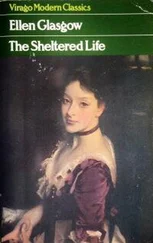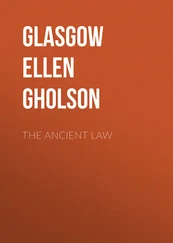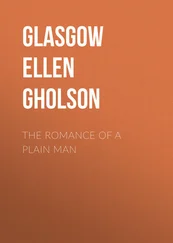Ellen Glasgow - Virginia
Здесь есть возможность читать онлайн «Ellen Glasgow - Virginia» — ознакомительный отрывок электронной книги совершенно бесплатно, а после прочтения отрывка купить полную версию. В некоторых случаях можно слушать аудио, скачать через торрент в формате fb2 и присутствует краткое содержание. Жанр: foreign_antique, foreign_prose, на английском языке. Описание произведения, (предисловие) а так же отзывы посетителей доступны на портале библиотеки ЛибКат.
- Название:Virginia
- Автор:
- Жанр:
- Год:неизвестен
- ISBN:нет данных
- Рейтинг книги:4 / 5. Голосов: 1
-
Избранное:Добавить в избранное
- Отзывы:
-
Ваша оценка:
- 80
- 1
- 2
- 3
- 4
- 5
Virginia: краткое содержание, описание и аннотация
Предлагаем к чтению аннотацию, описание, краткое содержание или предисловие (зависит от того, что написал сам автор книги «Virginia»). Если вы не нашли необходимую информацию о книге — напишите в комментариях, мы постараемся отыскать её.
Virginia — читать онлайн ознакомительный отрывок
Ниже представлен текст книги, разбитый по страницам. Система сохранения места последней прочитанной страницы, позволяет с удобством читать онлайн бесплатно книгу «Virginia», без необходимости каждый раз заново искать на чём Вы остановились. Поставьте закладку, и сможете в любой момент перейти на страницу, на которой закончили чтение.
Интервал:
Закладка:
"Oh, of course, it's just what John Henry would like," said Virginia, speaking for the first time.
"Then if it's good enough for John Henry, it's good enough for Oliver, I reckon," rejoined Miss Priscilla. "Anybody who has mixed with beggars oughtn't to turn up his nose at a respectable bank."
"But he says it's because the bank is so respectable that he doesn't think he could stand it," answered Susan.
Virginia, who had been looking with her rapt gaze down the deserted street, quivered at the words as if they had stabbed her.
"But he wants to be a writer, Susan," she protested. "A great many very nice people are writers."
"Then why doesn't he go about it in a proper way, if he isn't ashamed of it?" asked the teacher, and she added reflectively after a pause, "I wish he'd write a good history of the war – one that doesn't deal so much with the North. I've almost had to stop teaching United States history because there is hardly one written now that I would let come inside my doors."
"He doesn't want to write histories," replied Susan. "Father suggested to him at supper last night that if he would try his hand at a history of Virginia, and be careful not to put in anything that might offend anybody, he could get it taught in every private school in the State. But he said he'd be shot first."
"Perhaps he's a genius," said Virginia in a startled voice. "Geniuses are always different from other people, aren't they?"
"I don't know," answered Susan doubtfully. "He talks of things I never heard of before, and he seems to think that they are the most important things in the world."
"What things?" asked Virginia breathlessly.
"Oh, I can't tell you because they are so new, but he seems on fire when he talks of them. He talks for hours about art and its service to humanity and about going down to the people and uplifting the masses."
"I hope he doesn't mean the negroes," commented Miss Priscilla suspiciously.
"He means the whole world, I believe," responded Susan. "He quotes all the time from writers I've never heard of, and he laughs at every book he sees in the house. Yesterday he picked up one of Mrs. Southworth's novels on mother's bureau and asked her how she could allow such immoral stuff in her room. She had got it out of the bookcase to lend to Miss Willy Whitlow, who was there making my dress, but he scolded her so about it that at last Miss Willy went off with Mill's 'Essay on Liberty,' and mother burned all of Mrs. Southworth's that she had in the house. Oliver has been so nice to mother that I believe she would make a bonfire of her furniture if he asked her to do it."
"Is he really trying to unsettle Miss Willy's mind?" questioned the teacher anxiously. "How on earth could she go out sewing by the day if she didn't have her religious convictions?"
"That's just what I asked him," returned Susan, who, besides being dangerously clever, had a remarkably level head to keep her balanced. "But he answered that until people got unsettled they would never move, and when I wanted to find out where he thought poor little Miss Willy could possibly move to, he only got impatient and said that I was trying to bury the principle under the facts. We very nearly quarrelled over Miss Willy, but of course she took the book to please Oliver and couldn't worry through a line of it to save her soul."
"Did he say anything about his work? What he wants to do, I mean?" asked Virginia, and her voice was so charged with feeling that it gave an emotional quality to the question.
"He wants to write," replied Susan. "His whole heart is in it, and when he isn't talking about reaching the people, he talks about what he calls 'technique.'"
"Are you sure it isn't poetry?" inquired Miss Priscilla, humming back like a bee to the tempting sweets of conjecture. "I've always heard that poetry was the ruination of Poe."
"No, it isn't poetry – not exactly at least – it's plays," answered Susan. "He talked to me till twelve o'clock last night while we were arranging his books, and he told me that he meant to write really great dramas, but that America wasn't ready for them yet and that was why he had had to sell his clothes. He looked positively starved, but he says he doesn't mind starving a while if he can only live up to his ideal."
"Well, I wonder what his ideal is?" remarked Miss Priscilla grimly.
"It has something to do with his belief that art can grow only out of sacrifice," said Susan. "I never heard anybody – not even Jinny's father in church – talk so much about sacrifice."
"But the rector doesn't talk about sacrifice for the theatre," retorted the teacher, and she added with crushing finality, "I don't believe there is a particle of sense in it. If he is going to write, why on earth doesn't he sit straight down and do it? Why, when little Miss Amanda Sheppard was left at sixty without a roof over her head, she began at once, without saying a word to anybody, to write historical novels."
"It does seem funny until you talk with him," admitted Susan. "But he is so much in earnest that when you listen to him, you can't help believing in him. He is so full of convictions that he convinces you in spite of yourself."
"Convictions about what?" demanded Miss Priscilla. "I don't see how a young man who refuses to be confirmed can have any convictions."
"Well, he has, and he feels just as strongly about them as we do about ours."
"But how can he possibly feel as strongly about a wrong conviction as we do about a right one?" insisted the older woman stubbornly, for she realized vaguely that they were approaching dangerous ground and set out to check their advance in true Dinwiddie fashion, which was strictly prohibitive.
"I like a man who has opinions of his own and isn't ashamed to stand up for them," said Virginia with a resolution that made her appear suddenly taller.
"Not false opinions, Jinny!" rejoined Miss Priscilla, and her manner carried them with a bound back to the schoolroom, for her mental vision saw in a flash the beribboned diploma for good conduct which her favourite pupil had borne away from the Academy on Commencement day two years ago, and a shudder seized her lest she should have left a single unprotected breach in the girl's mind through which an unauthorized idea might enter. Had she trusted too confidently to the fact that Virginia's father was a clergyman, and therefore spiritually armed for the defence and guidance of his daughter? Virginia, in spite of her gaiety, had been what Miss Priscilla called "a docile pupil," meaning one who deferentially submitted her opinions to her superiors, and to go through life perpetually submitting her opinions was, in the eyes of her parents and her teacher, the divinely appointed task of woman. Her education was founded upon the simple theory that the less a girl knew about life, the better prepared she would be to contend with it. Knowledge of any sort (except the rudiments of reading and writing, the geography of countries she would never visit, and the dates of battles she would never mention) was kept from her as rigorously as if it contained the germs of a contagious disease. And this ignorance of anything that could possibly be useful to her was supposed in some mysterious way to add to her value as a woman and to make her a more desirable companion to a man who, either by experience or by instinct, was expected "to know his world." Unlike Susan (who, in a community which offered few opportunities to women outside of the nursery or the kitchen, had been born with the inquiring spirit and would ask questions), Virginia had until to-day accepted with humility the doctrine that a natural curiosity about the universe is the beginning of infidelity. The chief object of her upbringing, which differed in no essential particular from that of every other well-born and well-bred Southern woman of her day, was to paralyze her reasoning faculties so completely that all danger of mental "unsettling" or even movement was eliminated from her future. To solidify the forces of mind into the inherited mould of fixed beliefs was, in the opinion of the age, to achieve the definite end of all education. When the child ceased to wonder before the veil of appearances, the battle of orthodoxy with speculation was over, and Miss Priscilla felt that she could rest on her victory. With Susan she had failed, because the daughter of Cyrus Treadwell was one of those inexplicable variations from ancestral stock over which the naturalists were still waging their merry war; but Virginia, with a line of earnest theologians and of saintly self-effacing women at her back, offered as little resistance as some exquisite plastic material in the teacher's hands.
Читать дальшеИнтервал:
Закладка:
Похожие книги на «Virginia»
Представляем Вашему вниманию похожие книги на «Virginia» списком для выбора. Мы отобрали схожую по названию и смыслу литературу в надежде предоставить читателям больше вариантов отыскать новые, интересные, ещё непрочитанные произведения.
Обсуждение, отзывы о книге «Virginia» и просто собственные мнения читателей. Оставьте ваши комментарии, напишите, что Вы думаете о произведении, его смысле или главных героях. Укажите что конкретно понравилось, а что нет, и почему Вы так считаете.












